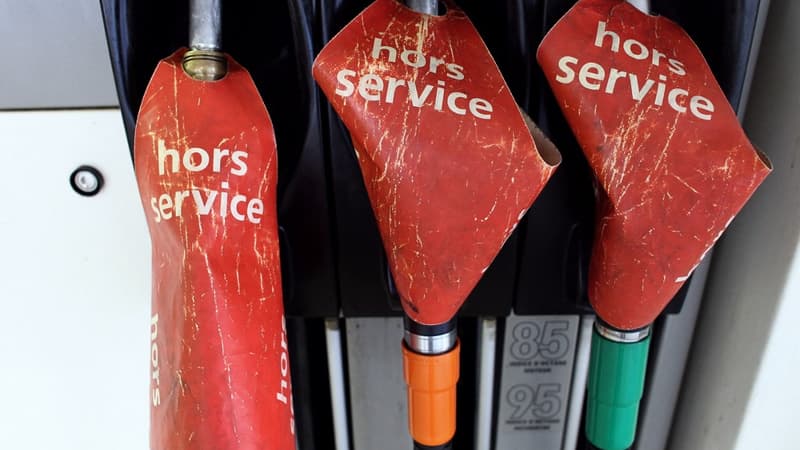Not to be accused of inertia. Olivier Véran, the government spokesman, called this Tuesday on RTL for the lifting “without delay” of the fuel blockades, threatening to “intervene” if necessary, as did Bruno Le Maire who called for “respect for the ‘general interest’ on France information
The Government has raised its voice in recent hours in the face of fuel shortages linked to the blockade of oil deposits in France since last week. During a meeting around Elisabeth Borne on Monday night, the Prime Minister delivered the message.
Towards department-by-department requisitions?
“The Government will assume its responsibilities to ensure the supply of the French”, in case of failure of the wage negotiations of the oil groups, explained the Chief Executive, according to what a government source informed BFMTV.
Matignon distinguishes the case of Esso-ExxonMobil and that of Total. In the first case, an agreement was reached on salary increases with no certainty that it would be respected on the ground. For the French oil giant, the government asks the management to seize the pole extended by certain unions to open quick negotiations.
Therefore, to unlock the oil deposits, the government could requisition the fuel deposits. Very specifically, it is possible to requisition striking workers only in an emergency, if the strike prevents the operation of essential services, such as police intervention vehicles.
These searches would then be done department by department, by decree of the prefecture, and would involve sending the police to the refineries.
The question of this possible recourse to requisitions must be decided on Tuesday night within the government, for a possible application as of this Wednesday.
various uncertainties
This very precise legal framework first raises the question of the uncertainty of the legality of these requisitions. The CGT, very active in the blocked oil deposits, could take legal action to annul these decrees decided by the prefecture. The right to strike is indeed a constitutional principle.
And even if justice were to win the government’s case, the highly inflammable social context, with inflation at its highest level since 1987, could push the executive to want to dispense with scenes of high tension between the CRS and the oil depot workers.
Not to mention the political risk. In 2016, while the government was studying the Labor Law, the Fos-sur-Mer oil depot, one of the largest in France, was unblocked by the police after several days of blockade. The gesture strongly displeases the CGT and poisons an already tense social context and leads to large-scale demonstrations in France.
A very important political risk
Which gives possible cold sweats to the government of Elisabeth Borne in full review of the budget in the National Assembly. In the absence of an absolute majority, the use of 49.3 to vote on the text seems very likely and may give pause to the opposition’s accusations of forced passage.
Power might also fear the coagulation of discontent in the street. La Nupes organizes, at the initiative of La France insoumise, on October 16 a “march against the high cost of living”. However, if the CGT stayed very far away from the initiative for the moment, it could finally join forces with those of Jean-Luc Mélenchon at the end of the week and give force to this first social mobilization since the re-election of Emanuel Macron.
Proof that Matignon wants to avoid oversupply at all costs: the Prime Minister should arrive within 24 hours to proceed with the requisitions, in the hope that salary negotiations can move forward between the strikers and their management.
Source: BFM TV


